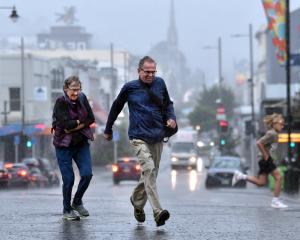
That statement sums up the friendly, non-judgemental approach to exercise promoted through a Dunedin community exercise programme (CEP) for people living with type 2 diabetes.
The programme has been run by the University of Otago School of Physiotherapy in the city for the past nine years.
Backed by a recent $1,181,772 Health Research Council grant, Otago researchers will soon be undertaking a randomised control trial in Dunedin and Invercargill, which could later result in the programme being rolled out elsewhere in the country.
Researchers are keen to recruit 220 adults, diagnosed with type 2 diabetes, half of them in Dunedin and the rest in Invercargill.
Participants will be aged 35 or older with a GP recommendation to exercise.
Half of each group of participants will undertake the 12-week CEP programme, which includes a 45-minute exercise session and another diabetes-related education session each week, followed by a weekly maintenance exercise class.
The other participants, also selected randomly, will undertake a day-long self-care workshop for managing type 2 diabetes.
CEP was developed in Dunedin specifically to target Maori and Pacific people and those living in low socio-economic areas.
Project manager Bonnie Scarth said the trial aimed to investigate whether those taking part in CEP had more control of their diabetes and better health outcomes a year later than the people who did not participate in it.
The study would also investigate if the programme was cost-effective and what was ''required to roll it out into other areas of New Zealand'', she said.
Otago clinical physiotherapist Chris Higgs, who has co-ordinated the community programme at the School of Physiotherapy for the past nine years, said New Zealand faced ''an epidemic of diabetes and obesity''.
He appreciated how important the exercise programme's welcoming, non-judgemental approach was, and the value participants found in meeting other like-minded people and forming links with them in the exercise groups.
Study participants can be referred by their GP or contact the research administrator on the internet at dcep.physio@otago.ac.nz














